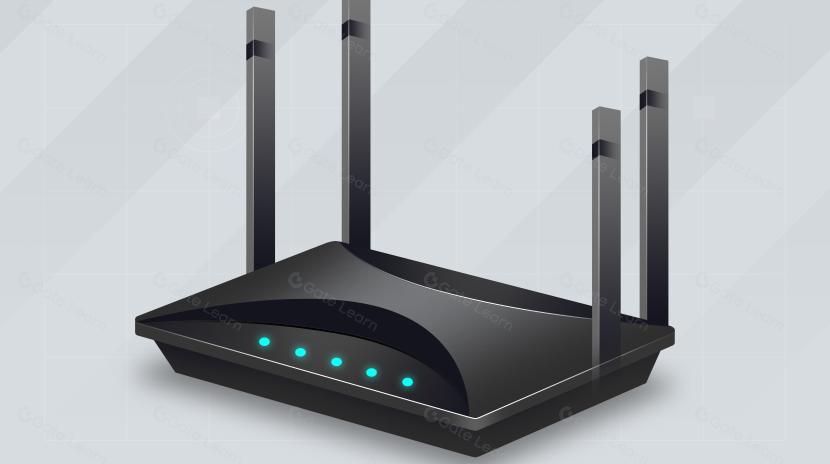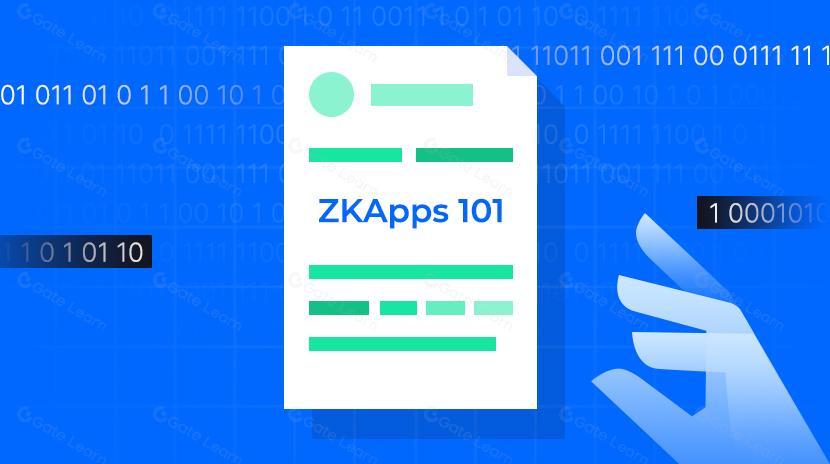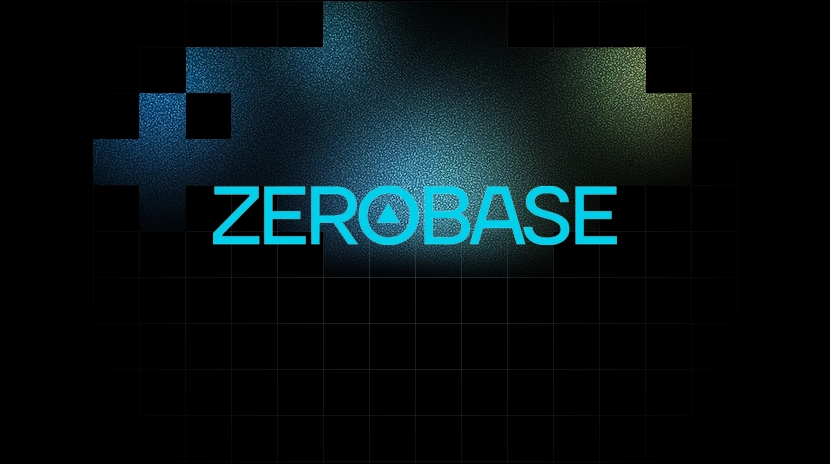Що таке zkWASM?
Огляд
Широке поширення Web3 стикається з декількома викликами, включаючи забезпечення плавного переходу традиційних розробників Web2 до розробки блокчейн-додатків без необхідності в обширних знаннях криптографії. zkWASM (Zero-Knowledge WebAssembly Virtual Machine) пропонує ефективне рішення цього питання.
Поєднуючи докази знань нуля (ZK) з WebAssembly (WASM), zkWASM призначений для сприяння безперервній міграції веб-додатків типу Web2 в екосистему Web3.
З zkWASM обчислення обробляються поза ланцюжком, тоді як на ланцюжку зберігається лише доказ цих обчислень. Цей підхід дозволяє розробникам створювати децентралізовані додатки (dApps) за допомогою відомих мов програмування, таких як Rust, C++ та Go. Шляхом усунення потреби розробників розуміти технологію доказу відомостей глибоко, zkWASM значно знижує поріг входження та вирішує ключові проблемні пункти у переході від Web2 до Web3.

Джерело: https://delphinuslab.com/tutorial/
Основні концепції
zkWASM заснований в основному на двох ключових технологіях:
WebAssembly (WASM): WASM - це ефективний формат байт-коду, який підтримує мови, такі як C, Rust та інші, для запуску у браузерах або віртуальних машинах блокчейну. Розроблений спільно Google, Mozilla, Microsoft та Apple, WASM пропонує відмінну продуктивність та переносимість, що робить його широко використовуваним для високопродуктивної веб-розробки.

Джерело: @bhavani.indukuri2/webassembly-wasm-revolutionising-web-development-with-high-performance-and-portability-e4aef76391bb"">https://medium.com/@bhavani.indukuri2/webassembly-wasm-revolutionising-web-development-with-high-performance-and-portability-e4aef76391bb
Доказ нульового знання (ZK): ZK дозволяє доказувачу продемонструвати правильність обчислення перевірнику, не розкриваючи деталей самого обчислення.
zkWASM поєднує переваги обох технологій, дозволяючи перевіряти результати виконання коду WASM через докази з нульовим розголошенням, тим самим підвищуючи конфіденційність та масштабованість блокчейну.
Принцип роботи
Ядро zkWASM полягає в поєднанні набору інструкцій WASM з доказами нульового знання (ZK) для досягнення ефективних та перевірених обчислень. Робочий процес складається з наступних кроків:
- Виконання коду WASM: WASM виконує смарт-контракти або обчислювальні завдання та генерує результати обчислень.
- Генерація доведення ZK: Використання технології доведення з нульовим розкриттям для генерації перевірочних доведень для обчислювального процесу WASM.
- Перевірка вірності обчислення: перевірники (такі як вузли в мережі блокчейн) повинні лише перевірити доказ ЗК без повторного виконання обчислення, що забезпечує правильність та вірогідність результатів обчислення.
Як переносна віртуальна машина, zkWASM дозволяє розробникам писати додатки, що захищають приватність, використовуючи звичайні мови програмування та компілюючи їх у формат WASM. Користувачі можуть запускати ці додатки у своїх браузерах, як звичайні додатки, без потреби у додатковій апаратній або програмній підтримці.
Ключові проекти
Delphinus Lab
Вступ:
Як піонер у екосистемі zkWasm, Delphinus Lab спеціалізується на розробці рішень у сфері довіри та комплексних наборів інструментів розробника (SDK). Команда прагне зменшити відстань між Web2 та Web3, полегшуючи процес прийняття технології блокчейну традиційними розробниками.
Ключові події:
Побудована передова віртуальна машина zkWasm, яка дозволяє здійснювати безпечні обчислення поза ланцюжком, забезпечуючи перевірку на ланцюжку за допомогою доказів з нульовим розголошенням
Створено універсальне середовище розробки, яке підтримує популярні мови програмування, включаючи C, C++, Rust та AssemblyScript
Введено zkWasm Hub - інноваційна хмарна платформа, де розробники можуть відкривати, обмінюватися та впроваджувати застосунки zkWasm з автоматизованою генерацією доказів та можливостями пакетної обробки
Застосування:
Платформа відзначається в обчисленнях, спрямованих на конфіденційність, забезпечує розробку децентралізованих додатків (DApps) та дозволяє впровадження власного протоколу Rollup.

Джерело: https://delphinuslab.com/?ref=blog.icme.io
ZKCROSS
Вступ:
ZKCROSS - це багатоланцюжковий виконавчий шар zkRollup, який використовує технологію zkWasm для забезпечення міжланцюжкової взаємодії та надання універсального виконавчого шару.
Ключові події:
Це роз'єднує шари виконання та вирішення, пропонуючи надійне багатоланцюжкове середовище виконання через технологію zkWasm.
Платформа сприяє швидкому розвитку та впровадженню мультиланцюжкових власних продуктів, забезпечуючи безпеку за допомогою протоколів ZKP з кінця в кінець.
Застосунки:
Перекривні переміщення активів, взаємодія гри на блокчейні між різними ланцюжками та протоколи децентралізованих фінансів через крос-ланцюжкові

Джерело: https://www.zkcross.org/
Співпраця Polygon та NEAR з zkWasm
Вступ:
Компанія Polygon Labs та Фонд NEAR об'єднали зусилля, щоб розробити zkWasm Prover для надання підтримки нульових доказів у Wasm-блокчейнах.
Ключові події:
Фонд NEAR став основним учасником набору розробників ланцюжка Polygon Chain Development Kit (CDK), що дозволяє розробникам використовувати zkWasm Prover при побудові блокчейнів другого рівня, підтриманих ZK.
Ця співпраця покращує взаємодію між ланцюжками Wasm та екосистемою Ethereum, покращуючи безпеку та масштабованість.
Заявки:
Технологія ідеально підходить для побудови власних ZK-приведених ланцюгів 2-го рівня та підтримує розширення по екосистемам EVM та Wasm.
zkWasm Хаб
Вступ:
zkWasm Hub є всеосяжною хмарною платформою від Delphinus Lab, яка оптимізує розробку та розгортання додатків zkWasm.
Ключові події:
Надає зберігання та доступ до зображень застосунків zkWasm, з можливістю доступу через REST API.
Підтримує автоматизовані служби компіляції та оновлення, що дозволяє розробникам розгортати проекти GitHub безпосередньо в zkWasm Hub.
Містить дослідник завдань для моніторингу стану завдань zkWasm.
Додатки:
Інструменти розробника, платформа розподілу додатків та децентралізовані хмарні сервіси.

Джерело: https://zkwasmhub.com/
Порівняння zkEVM, eWASM та zkWASM
zkEVM спрямований на підвищення конфіденційності та масштабованості Ethereum, підтримуючи Solidity. zkWASM спрямований на перехід від Web2 до Web3, пропонуючи підтримку декількох традиційних мов програмування. eWASM покращує ефективність виконання смарт-контрактів Ethereum і також підтримує декілька мов.
Ключові відмінності між zkEVM, zkWASM та eWASM полягають у їхніх основних напрямах: zkEVM підкреслює масштабованість Ethereum, zkWASM фокусується на полегшенні міграції традиційних розробників до Web3, а eWASM присвячений покращенню ефективності смарт-контрактів.


Джерело:https://hyperoracle.medium.com/zkwasm-the-next-chapter-of-zk-and-zkvm-471038b1fba6
Переваги
Покращена конфіденційність
zkWASM дозволяє користувачам виконувати смарт-контракти або обчислювальні завдання, не розголошуючи конкретних вхідних даних, а лише розкриваючи кінцевий результат. Наприклад, користувачі можуть виконувати складні обчислення поза ланцюжком та доводити правильність результату, використовуючи докази знань нульового (ZK) без розголошення підлеглого процесу обчислення.
Перевірна обчислення
Традиційне виконання розумних контрактів ґрунтується на тому, що всі вузли виконують дублювані обчислення. Однак zkWASM дозволяє виконання обчислень поза ланцюжком, генеруючи доказ ZK, який вузли на ланцюжку можуть перевірити, щоб підтвердити вірність результату. Цей підхід значно зменшує витрати на обчислення на ланцюжку.
Висока сумісність
Завдяки можливостям перенесення WASM, zkWASM підтримує кілька мов програмування, таких як Rust, C++ та Go. Це дозволяє розробникам створювати програми обчислення ZK за допомогою знайомих інструментів.
Покращена масштабованість
Переміщуючи обчислювальні процеси з-ланцюга та подаючи лише докази ZK, zkWASM значно зменшує навантаження на ланцюжкове обчислення, підвищуючи масштабованість блокчейну. Це особливо важливо для рішень масштабування, таких як Rollups та протоколи 2-го рівня.

Джерело: https://delphinuslab.com/tutorial/
Виклики
Незважаючи на помітні переваги zkWASM у захисті конфіденційності, масштабованості та сумісності з крос-платформою, залишаються кілька технічних викликів у його прийнятті:
1. Висока обчислювальна витрата та дорогенерування доказів
Виконання коду WASM з використанням zkWASM вимагає перетворення кожного обчислювального кроку в доказове доказу у нульовому відомості, що значно збільшує обчислювальну складність.
Проблема: Схеми доказів з нульовими знаннями (наприклад, ZK-SNARKs, ZK-STARKs) часто включають в себе обширні та складні математичні операції, такі як зобов'язання поліномів та обчислення еліптичних кривих. Ці процеси можуть призвести до тривалих часів генерації доказів та великого споживання ресурсів.
Потенційна оптимізація: Дослідження більш ефективних алгоритмів доведення ZK та використання апаратного прискорення (наприклад, FPGA, GPU) може допомогти зменшити обчислювальні накладні витрати.
2. Складне відображення з WASM на нуль-знання циркуляції
Хоча WASM розроблено для ефективного виконання, воно не є оптимізованим для сумісності з доказами нульового довідомого значення. Пряме перетворення інструкцій WASM у ZK схеми може призвести до введення обмежень продуктивності.
Проблема: набір інструкцій WASM не відображається безпосередньо на арифметичну модель ланцюжка, яка використовується в доказах ZK, що призводить до неефективних конвертацій.
Потенційна оптимізація: розробка більш ефективного проміжного представлення (IR) може допомогти мінімізувати непотрібне обчислювальне навантаження та покращити придатність коду WASM для обчислень ZK.
3. Сумісність та екосистема розробників
Незважаючи на те, що WASM підтримує кілька мов, zkWASM все ще повинен інтегруватися з існуючими інструментами екосистеми ZK, щоб зменшити криві навчання розробників.
Проблема: Існуючі мови ZK (наприклад, Circom, ZoKrates) та екосистема WASM мають відмінні технічні стеки. Забезпечення безшовної інтеграції zkWASM з основними блокчейнами та екосистемами DApp є значним викликом.
Потенційна оптимізація: Продовження глибокої інтеграції zkWASM з популярними мовами, такими як Solidity, Rust та C++, надання дружніх інструментів розробки та фреймворків для користувачів.
4. Витрати на перевірку доказів та масштабованість на ланцюгу
У блокчейн середовищах докази ZK, згенеровані за допомогою zkWASM, повинні бути перевірені on-chain. Оскільки ресурси on-chain обмежені, оптимізація витрат на перевірку є критично важливою.
Проблема: Хоча перевірка доказів ZK вимагає значно менше ресурсів, ніж повторне виконання обчислень, це все ще може призвести до високих комісій за газ на громадських ланцюгах, таких як Ethereum.
Потенційна оптимізація: Дослідження більш ефективних алгоритмів підтвердження (наприклад, докази aggreGate.comd, рекурсивні докази) та використання рішень другого рівня для оптимізації перевірки on-chain та зменшення газових витрат.
5. Розвиток екосистеми та стандартизація
Як новітня технологія, zkWASM потребує надійних інструментів розробки, підтримки спільноти та стандартів галузі для поширення використання.
Проблема: zkWASM все ще перебуває на ранніх стадіях, з обмеженими стандартами API, наборами інструментів для розробників та фреймворками аудиту, що сповільнює його прийняття.
Потенційна оптимізація: Створення відкритих SDK, тестувальних інструментів та бібліотек смарт-контрактів може сприяти більш широкій участі розробників в екосистемі zkWASM, що в кінцевому підсумку позиціонує zkWASM як універсальне рішення приватної обчислювальної таємниці в Web3.
zkWASM, як інноваційне поєднання WASM та доказів нульового знання, має значний потенціал у сфері конфіденційних обчислень, масштабованості на рівні 2 та верифікації обчислень штучного інтелекту. Однак для досягнення широкого поширення дуже важливо подолати ключові виклики, такі як обчислювальні накладні витрати, проблеми сумісності, витрати на верифікацію та розвиток екосистеми. При поліпшенні алгоритмів доказів ZK, просуненні у апаратному прискоренні та дозріванні інструментів розробки zkWASM готується стати основною технологією в області конфіденційних обчислень у блокчейні.
Перспективи та сценарії застосування
Інноваційна архітектура zkWASM відкриває величезний потенціал для децентралізованих додатків. При еволюції технологій доказу знань (ZKP) та WebAssembly (WASM), zkWASM готується стати фундаментальним елементом екосистеми Web3, надаючи покращені рішення щодо конфіденційності, безпеки та масштабованості в різних галузях.
З завдяки постійним технічним вдосконаленням та вирізному інструментарію розробника zkWASM надасть розробникам більш дружню до користувача середовище, сприяючи прийняттю у Web3, DeFi, AI, IoT та інших секторах, що сприятиме широкому поширенню блокчейну.
1. DeFi (Децентралізована фінансова сфера)
Ефективна обробка транзакцій: Здійснюючи складні обчислення поза ланцюжком та перевіряючи їх за допомогою доказів ZK, zkWASM може значно зменшити як витрати на транзакції, так і затримки. Це робить його ідеальним для децентралізованих бірж (DEX), автоматизованих механізмів утворення ринку (AMM) та інших додатків DeFi.
Захист конфіденційності: Використовуючи технологію ZKP, zkWASM дозволяє здійснювати конфіденційні транзакції, де користувачі можуть передавати кошти або виконувати смарт-контракти, не розголошуючи чутливі деталі транзакцій.
Міжланцюжкова взаємодія: zkWASM, у поєднанні з рішеннями міжланцюжкової взаємодії, такими як ZKCROSS, сприяє безперешкодному переказу активів та агрегації ліквідності між різними блокчейн мережами.
Сценарій використання: Припустимо, що Користувач A бажає анонімно обміняти ETH на USDT. zkWASM обробляє транзакцію поза ланцюжком, записуючи лише кінцевий статус на ланцюжку. Це забезпечує захист конфіденційності та мінімізує витрати на транзакції.

Джерело: https://app.uniswap.org/?lng=uk-UA
2. Геймінгова фінансова галузь (GameFi)
Складна логіка гри: zkWASM підтримує виконання складної логіки гри поза ланцюжком (наприклад, обчислення в реальному часі в мультиплеєрних онлайн-іграх) та використовує ZK-докази для перевірки результатів, забезпечуючи справедливість та цілісність.
Торгівля та управління NFT: У екосистемах GameFi NFT-активи (такі як гральні предмети, шкіри та колекціонні речі) можуть бути ефективно торговані на оптимізованому шарі Rollup zkWASM, що значно зменшує витрати на транзакції.
Масштабованість: Використовуючи рішення Rollup для застосувань на рівні 3/рівні 4, zkWASM може підтримувати велику конкуренцію користувачів, вирішуючи проблеми з продуктивністю, які часто турбують традиційні ігри на ланцюжку.
Сценарій використання: Припустимо, Гравець A та Гравець B беруть участь у конкурентному матчі. Результат битви обчислюється поза ланцюжком за допомогою zkWASM, яке підтверджує, що Гравець A переміг. Результат потім записується в ланцюжок, де Гравець A отримує рідкісну картку NFT в якості винагороди — все це з мінімальними витратами на транзакції.

Джерело: https://axieinfinity.com/
3. SocialFi (Соціальне фінансування)
Децентралізовані соціальні мережі: zkWASM може підтримувати децентралізовані соціальні платформи, де дані користувачів шифруються та зберігаються безпечно за допомогою доказів нульового знання (ZKP), що гарантує конфіденційність та власність даних.
Економічна модель стимулювання: платформи SocialFi можуть заохочувати творців контенту та користувачів токенами. Висока пропускна здатність та низькі витрати zkWASM роблять його добре підходящим для обробки масштабних мікротранзакцій.
Перевірка вмісту: З технологією ZKP zkWASM може перевірити автентичність вмісту або власність на авторські права, зберігаючи конфіденційність користувача.
Сценарій використання: Припустимо, що користувач A публікує зашифрований матеріал. zkVoice перевіряє його оригінальність та фіксує, що він отримав 100 лайків. Платформа потім виділяє нагороди токенів on-chain, забезпечуючи конфіденційність користувача.

Джерело: https://www.thetatoken.org/
4. ШІ (Штучний Інтелект)
Машинне навчання в ланцюжку: zkWASM дозволяє виконувати складні висновки або навчання моделей штучного інтелекту (наприклад, нейромережеві обчислення) і використовує докази з нульовим розголошенням для перевірки результатів у мережі, що робить його ідеальним для децентралізованих додатків штучного інтелекту.
Обчислення збереження конфіденційності: у чутливих галузях, таких як охорона здоров'я та фінанси, zkWASM дозволяє зберегти конфіденційність інференції моделей штучного інтелекту, що дозволяє участі даних користувачів у обчисленнях без їх розголошення.
Токенізована екосистема штучного інтелекту: zkWASM може сприяти токенізації моделей штучного інтелекту, сприяючи інноваціям у сфері штучного інтелекту, орієнтованим на стимулювання і децентралізованому управлінню.
Приклад використання: пацієнт завантажує зашифровані дані аналізу крові, а BioPassport прогнозує високий ризик діабету. zkWASM генерує доказ «високого ризику», який потім записується в ланцюжок. Лікар може переглянути результат, не звертаючись до персональних даних пацієнта.

Джерело: https://biopassport.io/
5. Міграція складних веб-додатків з Web2 на Web3
Традиційні веб-додатки Web2: універсальність zkWASM дозволяє йому виконувати складну логіку Web2 (наприклад, платформи соціальних мереж, системи управління контентом, торговельні платформи) та безперешкодно мігрувати їх на Web3 за допомогою технологій ZKP та Rollup.
Високопродуктивні обчислення: Комбінуючи виконання поза ланцюжком з верифікацією на ланцюжку, zkWASM може задовольнити вимоги щодо продуктивності веб-додатків Web2, зберігаючи децентралізацію та безпеку.
Середовище, зручне для розробників: Широке поширення WebAssembly спрощує процес міграції, знижуючи поріг входу для розробників Web2, які переходять на Web3.
Сценарій використання: Припустимо, що користувач A купує смартфон. Замовлення збігається поза ланцюжком, zkWASM перевіряє наявність та оплату, а транзакція реєструється на ланцюжку. Зашифрована логістична інформація надійно зберігається в IPFS.
6. Приватні системи ідентифікації та автентифікації з збереженням конфіденційності
Децентралізований ідентифікатор (DID): zkWASM може бути використаний для побудови систем ідентифікації, що забезпечують конфіденційність, де користувачі можуть підтвердити свою ідентичність або кваліфікацію, не розголошуючи особисті дані.
Аутентифікація без доказів: У процесах, таких як Know Your Customer (KYC), zkWASM дозволяє користувачам довести, що вони відповідають певним критеріям, не розголошуючи детальну особисту інформацію.
Сценарій використання: Користувач, який подає заявку на отримання кредиту, завантажує зашифровану інформацію з паспортом. zkWASM перевіряє, що вік користувача перевищує 18 років, і генерує підтвердження на ланцюжку, підтверджуючи його відповідність. Платформа може схвалити кредит, не переглядаючи фактичні деталі паспорта.

Джерело:https://getaverses.com/
7. Ланцюг постачання та можливість відстеження
Збереження конфіденційності: Управління ланцюжками поставок, zkWASM може підтвердити походження продуктів, записи про транспортування та інші ключові дані, забезпечуючи захист від чутливої бізнес-інформації.
Ефективне розрахунок: Використовуючи технологію Rollup, zkWASM дозволяє ефективно обробляти багатосторонні транзакції та записи в ланцюжку поставок поза ланцюжком, з поданням лише кінцевого доказу в ланцюжку.
Сценарій використання: споживач сканує QR-код на пакеті молока, і zkTrace перевіряє, що він походить з Ферми А та пройшов якісні перевірки. Детальні дані виробництва залишаються зашифрованими для захисту конфіденційності.

Джерело: https://ethglobal.com/showcase/zktrace-imqfh
8. Децентралізоване хмарне обчислення
Розподілені обчислювальні завдання: zkWASM дозволяє розподіляти складні обчислювальні завдання між вузлами поза ланцюжком для виконання, результати перевіряються на ланцюжку за допомогою доказів нульового знання. Це робить zkWASM ідеальним для децентралізованих хмарних обчислень.
Оптимізація ресурсів: Використовуючи багаторівневі стратегії розширення (наприклад, L3/L4 Rollups), zkWASM ефективно розподіляє обчислювальні ресурси, знижуючи витрати при збереженні продуктивності.
Сценарій використання: Дослідник подає завдання зі складання білка. Поза ланцюжком вузли завершують обчислення, zkWASM перевіряє результати, а транзакція записується на ланцюжку з відповідною розподілею токенів.
9. Інтернет речей (IoT) та розумні пристрої
Комунікація приватного пристрою: zkWASM дозволяє забезпечити конфіденційність комунікації між пристроями Інтернету речей, забезпечуючи безпеку та автентичність даних за допомогою верифікації доказу знань.
Мікротранзакції: zkWASM підтримує малий масштаб платежів між розумними пристроями (наприклад, торгівля енергією або обмін даними) з низькими витратами, високою продуктивністю транзакцій, що працюють на технології Rollup.
Сценарій використання: Сонячна панель домогосподарства A продає надмірну енергію домогосподарству B. Транзакція обробляється поза ланцюжком, zkWASM перевіряє результат, а оплата реєструється на ланцюжку з мінімальними витратами.

Джерело: https://bloxmove.com/
10. Інші потенційні застосування
Голосування та управління: zkWASM може приводити анонімні системи голосування на основі ZKP, забезпечуючи конфіденційність виборців при збереженні прозорості та перевірки результатів.
Управління медичними даними: zkWASM може захищати конфіденційність пацієнтів, дозволяючи одночасно забезпечувати безпечний обмін даними та аналіз у сфері охорони здоров'я.
Освіта та сертифікація: zkWASM може полегшити видачу децентралізованих академічних сертифікатів і сертифікатів навичок, гарантуючи, що вони захищені від несанкціонованого доступу та легко перевіряються.
Висновок
zkWASM розроблений для вирішення технічних бар'єрів, з якими стикаються при міграції веб-застосунків Web2 до Web3, що сприяє більш широкому поширенню технологій Web3. Шляхом поєднання традиційних мов програмування з технологією доказів знань (ZKP) zkWASM пропонує підвищену безпеку, захист конфіденційності та взаємодію, що спрощує перехід веб-застосунків Web2 на платформи Web3. Розробники можуть створювати децентралізовані додатки (dApps), використовуючи звичайні мови програмування, такі як Rust, C++ та Go, не глибоко розуміючи складні концепції блокчейну, що значно знижує бар'єр у розробці.
Потенційні застосування zkWASM є обширними, охоплюють такі сектори, як DeFi, GameFi, SocialFi, AI, міграція Web2, захист конфіденційності, відстеження ланцюжків постачання, децентралізоване хмарне обчислення та Інтернет речей. За допомогою технологій ZKP та Rollup, zkWASM забезпечує високу продуктивність, захист конфіденційності та масштабованість, надаючи необхідну технічну підтримку для розвитку Web3.
Хоча zkWASM все ще стикається з викликами, пов'язаними з обчислювальними витратами, зрілістю екосистеми розробки та витратами на перевірку доказів, постійні технологічні вдосконалення та прийняття апаратного прискорення поступово розблоковують його потенціал. У майбутньому zkWASM готується стати ключовою технологією для розподіленого обчислювання, що сприятиме більшій ефективності, безпеці та включеності в екосистему Web3.
Пов’язані статті

Як виявляти та відстежувати розумні гроші в криптовалюті

МЕМКОЇН від TON: екологічна підтримка, інвестиційні проекти та ринкові тенденції

Детальне пояснення доказів із нульовим знанням (ZKP)

Глибоке вивчення крос-ланцюжкових мостів: від "роутерів" капіталу на блокчейні до нових двигунів захоплення вартості в цифровій економіці

ZKApps 101: Огляд та перспективи ландшафту ZKApps


